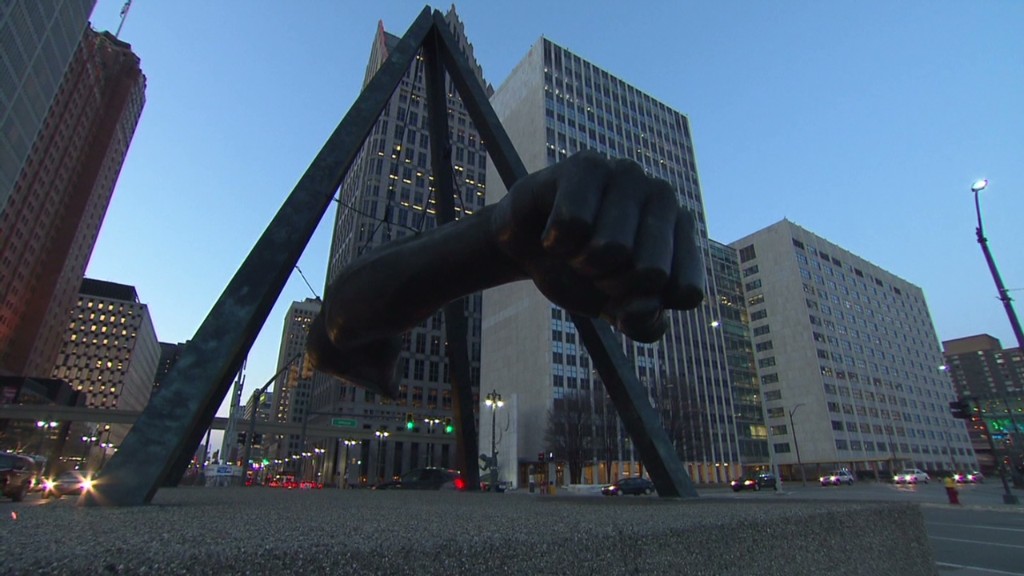
Michigan Gov. Rick Snyder announced Friday that the state will take over the operations of Detroit's city government due to its long-standing financial problems.
The takeover is short of a formal bankruptcy, but it will include appointing an emergency manager who would have many of the same powers as a bankruptcy judge. It could mean throwing out contracts with public employee unions and vendors that the city can't afford, and could lead to further cutbacks in already depleted city services.
Detroit has 10 days to appeal Snyder's decision that there is a financial emergency in the city. Snyder said he has a "top candidate" for the manager post, but that he won't announce it until after the appeals period has passed.
Snyder, a Republican, insisted the emergency manager is the best way to deal with the problems facing the city's operations.
"The current system has not been working. We have not stopped the decline," he said. "This is time for us not to argue or to blame, but to come together as Detroit, Mich., not Detroit vs. Michigan, and bring all of our resources to bear."
The U.S. auto industry, long associated with the city, has enjoyed a resurgence in the last few years since General Motors (GM) and Chrysler Group went into bankruptcy and received federal bailouts. But the auto turnaround has done little to help Detroit's finances. While GM's headquarters are in downtown Detroit and there is still a concentration of auto plants and suppliers in southeastern Michigan, there are relatively few facilities within the city limits.
Related: Best car sales in five years
A week ago, a state review board issued a report saying the city faces a cash shortfall of more than $100 million by June 30, and that long-term liabilities, including unfunded pension liabilities, exceeded $14 billion. Detroit has been borrowing to continue operations and would have fallen about nearly $1 billion short last year if it hadn't issued new debt.
"One of the things that needs to happen is all creditors need to be called to table, asking something from everyone," Snyder said when asked if Detroit would get relief from the debt it owes those who own the city bonds. He said he hoped different payment schedules could be worked out for those who are owed money.
Under Michigan law, the emergency manager is expected to stay in place for at least 18 months. Snyder agreed with a questioner who said that is not enough time to solve the city's problems, but said it should be enough time to implement a plan and put a "structural process" in place.
The review team said that while the mayor and city council deserve credit for some difficult financial reforms, "those reforms are too heavily weighted toward one-time savings and apply only to non-union employees who represent only a small portion of the city's overall wage and benefit burden."
The review team therefore found that an emergency exists in the city "because no satisfactory plan exists to resolve a serious financial problem."
That report set the stage for Snyder to announce the takeover. Snyder has made many decisions unpopular with Democrats in the state, including signing a "right-to-work" strongly opposed by unions. The state takeover of Detroit is very unpopular with many residents in the state's largest city, especially its unions. Neither Mayor Dave Bing nor any member of the city council attended Snyder's announcement Friday, which was made at a town hall meeting where residents had the opportunity to ask questions.
-- CNN's Dana Garrett contributed to this report


